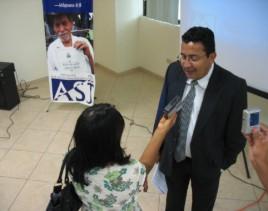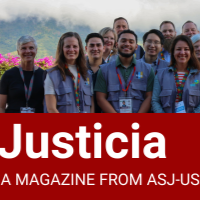The study surveyed 225 workers from Honduras’s largest restaurant chains: Church’s Chicken, Little Ceaser’s, Dunkin’ Donuts, Pollo Campero, Popeye’s Chicken, Burger King, Pizza Hut, Kentucky Fried Chicken, Wendy’s, and Applebee’s.
The findings show that among those surveyed:
- 80 percent of the women were required to take pregnancy tests;
- 24 percent did not receive severance benefits upon the termination of their contract;
- 11 percent were not paid for overtime hours worked, despite 15 percent reporting that they were required to work extra hours;
- 17 percent did not receive their educational bonus;
- 7 percent did not receive the extra month of pay required by law.
Hernandez said that one of the most troubling findings was the high percentage of women required to submit to pregnancy tests, a practice specifically outlawed by Honduran law. “This element should catch the attention of all organizations that work with women,” he said. “They should lend their support to this fight because having a child is a human right.”
Many employees surveyed, particularly employees of Wendy’s, also reported being forced to take lie-detector tests. The test results, often skewed due to nerves, would be used to “prove” that the employees were lying about aspects of their job performance, thereby allowing the company to avoid paying severance benefits. (For example, a manager might ask an employee “have you ever stolen food from the restaurant”; the employee may never have stolen anything, but still show physical signs of nervousness due to the uncomfortable situation that the polygraph would interpret as meaning the employee was lying.)
This study is part of ASJ’s ongoing effort to achieve labor rights for Honduras’s most vulnerable workers: private security officers, cleaning company personnel, and fast-food workers. Since 2004, ASJ has been one of the only organizations in Honduras fighting for the rights of workers in these sectors.
Hernandez said that one key to improving conditions for fast-food employees is to strengthen the punishments against companies who violate labor rights. Most fines for a violation fall between $250 and $1,000 – pennies compared to the money the companies save by violating laws in the first place. Hernandez is calling for the Honduran government to temporarily or permanently close restaurants that disrespect the laws.
ASJ is committed to following up on the study by filing formal complaints with the Labor Secretary, the Prosecutor of Crimes Against Women, the National Women’s Institute, and the Prosecutor of Human Rights Violations. ASJ will also continue monitoring the treatment of workers in the fast-food industry and educating workers on their legal rights.
“We have been working steadily to bring awareness to these problems, and the companies continue making a mockery of the people, making a mockery of the law, and making a mockery of the system,” Hernandez said. “We have to unite to fight these injustices.”
















